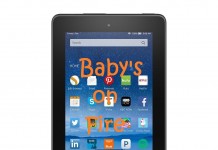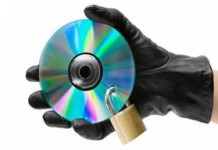 Several times in recent months people have sidled up to me as I have sat reading on my Sony PRS-505 e-reading device to inquire about the device and the reading experience. After going through a demonstration and letting them “play” with it a little, the final question comes: “How expensive is it?” It used to be that once they heard the price, they couldn’t wait to move on. But with recent price lowerings, people are becoming more interested.
Several times in recent months people have sidled up to me as I have sat reading on my Sony PRS-505 e-reading device to inquire about the device and the reading experience. After going through a demonstration and letting them “play” with it a little, the final question comes: “How expensive is it?” It used to be that once they heard the price, they couldn’t wait to move on. But with recent price lowerings, people are becoming more interested.
I understand the sticker shock. My Sony cost $300 two Christmases ago, to which I added another $70 for a 3-year extended warranty that covered all contingencies (a warranty that, I should add, has given me peace of mind but which has never been used) — roughly $400 for a device to read books, which I could do already without the device. Although my particular model is no longer available, you can buy a similar Sony (the PRS 300) for about $150 (the primary difference is that my Sony has a 6-inch screen and the 300 has a 5-inch screen) or the Sony 600 for $199 (it has a 6-inch touchscreen). (Also worth noting is that Barnes & Noble lowered the price of its nook, Amazon lowered the price of its Kindle, and the Kobo is also available at a relatively low price.)
But the economics of these devices actually argues, depending, of course, on what you like to read, for the “reasonableness” of the cost — whether that cost is what I originally paid or today’s prices (and tomorrow’s likely prices). If your reading consists only of books that appear on the bestseller lists, then the reader is convenient but probably not very economical. If your reading habits tend to be closer to mine, then the economic arguments in favor of owning one far outweigh those against.
I have always been an avid reader. As a kid, I used to take out 6-10 books every week or two from my local library. As an adult, my reading habits continued except that I now buy more books than I will ever get read. In addition to quantity, I have a relatively broad reading interest when it comes to nonfiction, and a narrower interest when it comes to fiction.
What I have discovered since I received my Sony Reader is that the quantity of books I read has increased and my range of fiction topics has widened. The Reader makes it easy to enjoy reading.
But little of that has to do with the economics of the reading devices. The question is how does the cost of the reader balance against the cost of buying books? For me that balance definitely tips into the positive side of the scale. First, thousands of very good books, including many, if not all, of the classics, are available for free. If I spent an average of $8 for a paperback that I read once and I spent $200 on a reader, just 25 free books would negate the cost of the reader; the 26th book would start the scale tipping to the positive side.
Finding 25 free ebooks to read is easy. There are many sources. Granted, none are the current New York Times bestsellers, but does that really matter? My Sony Reader has also opened me to the world of the independent author and the small (need I say micro) press. Before my wading into the ocean of ebooks, the only way I would find a book to buy and read was by going to my local bookstores. How many of us can go to such a bookstore and find independent authors and small press books easily?
eBooks have changed that equation. And the advantage is that many thousands of ebooks are available for less than $3. If I only bought ebooks at $3, I would have to buy 67 of them over the life of my Reader to balance out the initial $200 purchase price. Not a difficult task for most of us; for many of us that amounts to no more than 2 years’ worth of reading, and often less than 1 years’ worth. And if I mix free with ebooks costing $3 or less, it simply won’t take long to recoup that investment.
It should also be noted that many of the available free ebooks are contemporary and well-known author ebooks; that is, not just self-published or indie authors. For example, these ebooks are available for free: John Gilstrap’s No Mercy, John Stross’ Overtime, Rachel Swirsky’s A Memory of Wind, John Miller’s Star Wars: Lost Tribe of the Sith, and Warren Adler’s American Quartet. Some inexpensive contemporary fiction examples are Heather Graham’s Ghost Memories ($2.84), Fern Michaels’ Fool Me Once ($4.75), Stephen King’s Riding the Bullet ($4.19), J.D. Robb’s Midnight in Death ($1.99), and Sherrilyn Kenyon’s Dragonswan.
The point is this: Buying a dedicated device to read books can be very cost-effective if you are an avid reader and not wedded to reading only what the bestseller lists proclaim are the reads du jour. If you haven’t looked into such a device, now may well be a good time to do so.
Editor’s Note: the above is reprinted, with permission, from Rich Adin’s An American Editor blog. PB


































One of the amusing things I find in reading the large publishers’ logic about piracy is their assumption that I am standing around waiting to read _their_ offerings.
I subscribe to the local newspaper, and Newsweek. I have access to a large number of free ebooks or shorter fiction on the web (your list is a good starting place). Nearby, there’s a wonderful public library whose domain covers half a county[1]. They also check out Overdrive ebooks. I occasionally even _buy_ an ebook. Ususlly from Baen, Fictionwise or someone else who doesn’t use DRM. Then there’s the list of RSS feeds and websites I try to check regularly. Some of them are lists of free offerings.
Someday, someone needs to explain to the large publishers why their sales are declining. Part of it is that I have trouble fitting them in. I’ll try and get back to them, someday, when I have time away from reading my ebooks, pbooks, library books of both types, magazines, newspapers and websites. 🙂
They really need to heed Ficbot/Joanna’s perinneal complaint and make sure that buying from them is easier and faster than piracy. Money isn’t the main object, but my time, that’s of the essence. ebooks make time.
Regards,
Jack Tingle
[1] MA counties are very, very large.
I keep an ongoing spreadsheet, as I have posted before. And it proves ereaders are economical if you read a lot. I read a mixture of free books, purchased books and library ebooks, and the cost of the free books (or cheaper ones) subsidizes the cost of the device and the more expensive ones. Even factoring in the cost of the device, if you divide money spent by books read, I am at about $7 a book. It will get down to $3 per book if I finish all my purchased stuff before I buy anything new.
And economic merit doesn’t even factor into the decision if you choose to read ebooks because of the massless convenience, the lighter weight of a reader vs print books, the control over text presentation (especially for older readers that need larger text), or just the instant gratification of a direct pipeline to the ebookstore.
Of course, there *is* the matter of the smell of ink on paper…
…but I’m not a fetishist so that doesn’t sway me. 😉
I agree with Jack in that the big publishing houses are failing in the current ebook climate. As an Australian Sony ebook reader (love my PRS700 with the lighting function – hubby was so keen on it he had to buy one for himself too) my biggest frustration is the inability to purchase the new releases from favoured authors from the big publishing houses. In fact I can purchase nothing at all from the major publishers direct as I am an Australian resident.
So whilst I wait for major publisher books to either find their way to second hand stores or local libraries, I search for what is currently accessible and I find this in the samller ebook publishers which I would never have considered before. In the last 6 months I have purchased maybe 2 new paperbacks compared to over one hundred ebooks via only three websites: All Romance Ebooks, New Concepts Publishing and Jasmine Jade Enterprises (aka Ellora’s Cave).
This has generated a loyalty to those publishers and repeat sales for new authors that I am discovering through this new forum. Quite frankly I am finding that my voracious reading appetite for sci-fi/fantasy/romance has been so well fulfilled by non maintream publishers that I very rarely go into a bookstore these days. There is no longer any need.